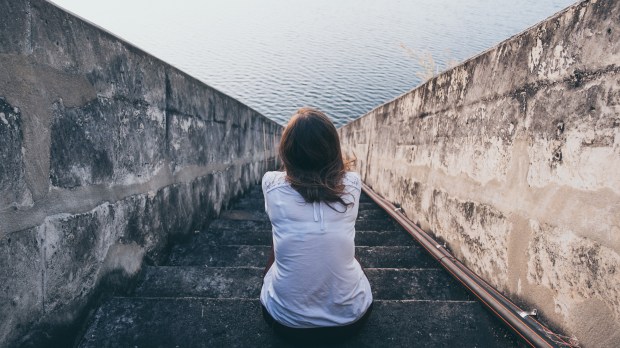My friend Allie lives with chronic, often debilitating, pain. She has gone to many doctors to find the cause, and has come up with no answers and no diagnosis. Watching her suffer is hard, and has opened my eyes to the world of invisible illnesses. Recently, I asked her some questions about her life with chronic pain, hoping that her experience and wisdom could help others in similar situations.
What does your chronic pain typically look like from day to day?
Truthfully, for the past two years every day has been different. Currently, I have a lot of joint pain, so walking on my own is difficult. My balance is off, and I am very stiff. Additionally, I have vertigo so I feel very dizzy. Once or twice a week I have terrible headaches and head pain. And then my body does something that looks similar to having a seizure or fainting in response to stimulation overload.
For example, my body just stops working often after I hear a loud noise; I fall down and can’t move for 15 minutes to an hour. That is not pain necessarily, but it is mentally challenging to not be in control of your own body, and makes it dangerous for me to do many of the things I love.
What is a hard part of living with unexplained chronic pain that people don’t understand or see?
With invisible chronic illness and pain, on any given day I could look completely normal, but the truth is I feel sick all the time and there’s no end in sight. I’d say the hardest part is explaining my situation to other people, especially because I don’t quite understand it myself and each day is different. Sometimes I may have to cancel plans unexpectedly because of the amount of pain I’m in, but I look fine, so people are confused. Also, I don’t have a diagnosis, which makes it very hard to explain something I don’t have answers to or a way to talk about.
What are ways people can support friends or loved ones in situations similar to yours?
Ultimately, people can help me by journeying with me and by being flexible. I’m going to have bad days and good days, and I don’t know when they will come. It feels awful already being in such a lot of pain and then having to cancel plans or not be able to do something. I don’t want to feel like a burden. Any way you can be supportive and flexible, like having a conversation or spending time together with someone with chronic illness, is helpful because this journey is very isolating. For example, if you had plans with someone, and they have to cancel, offer to come to them, and be willing to just sit with them instead.
What are ways you have found to cope day to day?
First, a lot of rest. Rest (not necessarily sleeping) is a chronically ill person’s best friend. Second, check your outlook. A lot of coping is your mentality. I went from working 40 hours a week with a vibrant social life, exercising at the gym five times a week and cooking a lot to a very different life with my pain. Now, I need to work a different, less active job. I can’t exercise because of my symptoms. I can’t drive long distances to visit friends and family, and I can’t even cook much because of the danger of passing out with a knife in hand or at the stove. It is easy to stay in a negative head space when you see the life you had compared to the one you have now.
So, to cope, you have to be able to stay positive. Remind yourself of what your body can do. Celebrate things like “today I got up and did the dishes” or “today I was able to go on a walk!” Third, offer your suffering for others. Ask God to use this suffering to help other people. And last but not least, ask for help!
How has this unexplained pain affected your relationship with God?
I have had periods of being upset with God because I get tunnel vision on how much pain I am in, and then I push away from God. But I also have good days where I am super thankful, and remember He has a plan, and that I will be okay and provided for. This life is just a journey; it isn’t everything.
The surrender novena has been a big part of my prayer, surrendering my pain, my frustration, and everything I have to Jesus. It has helped me to pray more for other people also. I will try to pick a person a day to offer my pain for them.
What would you say to someone else who is experiencing chronic pain?
Don’t believe the lies of the world when it comes to your worth. It is very easy to feel “less than.” A full life is a life with pain. A life with chronic pain is still a life worth living. Everyone is different, but this is your journey. Embrace that. It is okay to be upset on your bad days. But make sure you rejoice on your good days. Hold onto every moment and recognize the blessing it is to be alive. This life is fleeting compared to eternity. Oh, and ask for help!



